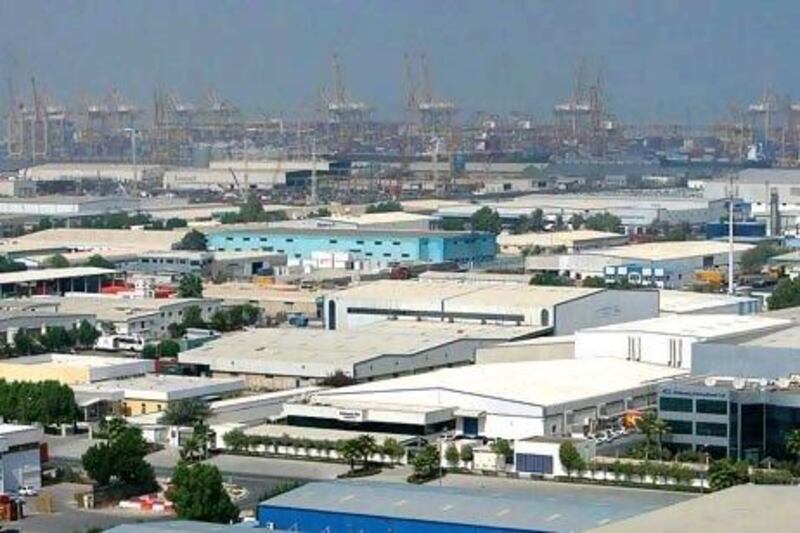Several large Dubai companies are expected to face debt repayment challenges until the end of next year because of weakness in the property market, according to Moody's Investors Services.
Jebel Ali Free Zone, DIFC Investments and Dubai Holding Commercial Operations Group (DHCOG) would have to meet large maturing debt repayments over the next 18 months, the ratings agency said in a report released yesterday.
"The critical question here is whether Dubai's desire or willingness to support these entities will be matched by an ability to provide support," the report said.
Investments in property by several Dubai firms have soured as prices have fallen. Jebel Ali Free Zone (JAFZ), a unit of Dubai World, was highlighted as facing particular problems.
"We believe that JAFZ's need for external support is high, as the company's capital structure is unsustainable," the report said.
Full-year profit at JAFZ fell by more than half last year as impairments on property investments rose, the company said in April. It also said it was considering options to refinance its Dh7.5 billion (US$2.04bn) Islamic bond.
DIFC Investments, the investment arm of the company that runs DIFC, posted a smaller loss last year than in 2009. The bulk of last year's loss was caused by a fall in the value of its property investments, the company said last month.
Despite returning to profit last year, DHCOG recorded Dh10.3bn of impairment charges against property, investments and joint ventures.
"Our outlook for the Gulf property industry remains negative, reflecting our view that key markets - Dubai, Abu Dhabi, Doha and Bahrain - will continue to suffer from severe oversupply in residential property and in commercial units," said the Moody's report.
The Dubai Government's ability to support entities remained strong for those considered core to the emirate's economic development, it said.
Moody's said it was reviewing the long-term implications of asset impairments and sales to the Abu Dhabi Government on medium-term business and cash-flow prospects for Aldar Properties. In January, Aldar received a capital injection from Mubadala Development, a strategic investment company owned by the Abu Dhabi Government, a measure which included asset sales and eased the company's immediate refinancing needs. As a result, Moody's changed its review of the Abu Dhabi property company's ratings from "under review for possible downgrade" to "direction uncertain".
Moody's outlook for Saudi Arabia's property market remained more positive, especially in the residential market, where there was pent-up demand from a large, growing and young population.
In contrast to the GCC property market, Moody's said prospects for the telecommunications industry were stable, but with a negative bias.





